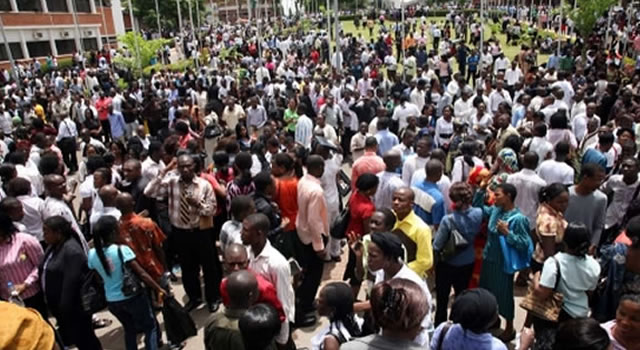World Bank’s Lead Economist for Nigeria, Alex Sienaert has stated that the recent rise in Nigeria’s minimum wage will benefit only a small portion of the population, affecting just 4.1% of working-age Nigerians.
Sienaert stated this during the Nigeria Development Update (NDU) report launch in Abuja on Thursday.
He explained that while the wage hike is significant, its direct influence will be minimal, as it primarily affects formal wage earners.
“The Federal Government of Nigeria increased the minimum wage, which will affect only a small share of the population. Raising the minimum wage directly affects only 4.1% of working-age Nigerians,” he said.
Sienaert explained that addressing poverty requires more than employment expansion, stressing the need for productive jobs that provide sustainable livelihoods.
The new report by the World Bank also confirmed that employment alone is not a guarantee of escaping poverty, noting, “Being employed, however, is no guarantee of being able to escape poverty. Many jobs are not productive and therefore remunerative enough to afford a life beyond poverty.”
It added that while creating jobs is essential for inclusive growth, those jobs must harness Nigeria’s growing population and tap into its potential “demographic dividend.”
The report also highlighted the limited reach of policies focused on formal wage earners, such as public sector workers and minimum wage legislation, noting that these policies often bypass the poorest workers.
“Policy initiatives that cover only highly-formalised wage jobs, including policies focused on public sector workers and minimum wage legislation may not reach many of Nigeria’s poorest workers directly.
“While increasing the demand for wage workers is a key policy priority, the vast majority of employed Nigerians, especially from poorer households do not currently hold such jobs. This limits the direct effects that policies focusing on subsets of wage workers can have on poverty.
“In particular, public sector wage jobs are not only rare and disproportionately occupied by comparatively better off Nigerians; they also pay significantly more than private sector and other types of wage jobs, even after taking individual characteristics into account, suggesting there are additional barriers to entry into public sector jobs, which may lock out the poor and economically insecure.
“Similarly, minimum wage legislation may not directly reach the poorest workers because they do not hold wage jobs and around a third of private sector wage earners receive less than minimum wage anyway, demonstrating that enforcement is imperfect,” it read.
The report warned that higher wages and public sector pay could place a burden on government finances, indicating that more comprehensive employment policies are required to effectively alleviate poverty.



